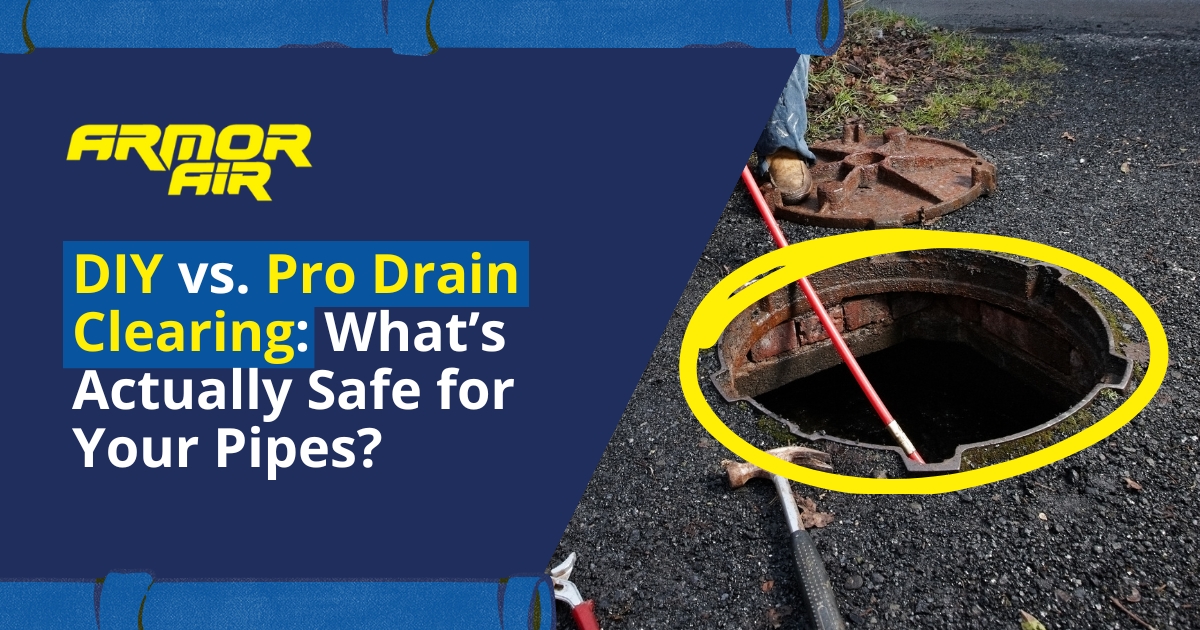Closed: Sun for God + Family time

How a Smart Thermostat Can Save You Money This Summer
You may have heard that getting a smart thermostat for your HVAC system will make it more convenient to maintain a comfortable home temperature using voice controls, programming options, and remote apps, but did you know it’ll also save you money?
Living in the metropolitan Indianapolis area, you know that our mild summers have more frequent temperature spikes with days reaching into the 90s. Running the AC all day long gets costly, but with a smart thermostat, you can minimize your HVAC use while maximizing its cooling power. They are excellent tools for precisely controlling your heating and cooling systems, keeping energy bills down, and comfort high.
Armor Air is your trusted local partner for smart thermostat selection, installation, and integration with your HVAC system. We’re here to help homeowners like you, answer your questions, and provide tips for homeowners on heating, cooling, and plumbing. You’ll love having total control over your interior environment.
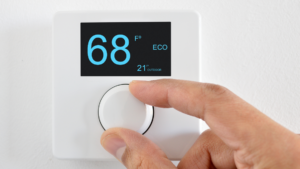
What Is a Smart Thermostat?
Smart thermostats are energy-saving thermostat options that are Wi-Fi-enabled. A smart thermostat will automatically adjust your HVAC system to maintain a steady, consistent temperature in your home, increasing comfort in the home, especially during the hottest summer months. They’re convenient, easy to use, and designed to save the average homeowner money on their energy bills.
How Smart Thermostats Work
Smart thermostats use cutting-edge technology to maintain a comfortable home temperature and monitor it from anywhere. Your new thermostat will connect to the internet through your home Wi-Fi network, which is how you can control the settings from an app on your mobile device or by using voice commands on your smart home system.
Smart thermostats have sensitive temperature sensors that monitor the temperature inside the home (and some check the outside temperature too). Depending on the model, the thermostat might also use sensors to detect when people are in a room or geofencing technology to know when you’re getting close to home, and make temperature adjustments accordingly. These smart devices learn your preferences and use this data to create a customized automatic temperature schedule. Not only will the thermostat know when to turn up the power on the AC, but it’ll also know when to shut it down to save energy.
Key Benefits of Using a Smart Thermostat in Summer
Lower Cooling Costs
Smart home temperature control systems reduce summer cooling bills using precise temperature controls that quickly adjust the AC to your exact specifications. They also use algorithms to learn when you need high cooling power, and when they can turn it down to reduce energy waste.
Remote Temperature Control
You can control your home temperature through your phone or tablet, even when you’re not home. Combined with their programmable thermostat features, being able to remotely change your temperature settings makes it easy to maintain tight control over your indoor climate, day and night.
Remote controls also allow you to make adjustments over an extended time away from home or when your plans change, so you don’t unnecessarily waste energy on cooling an empty house.
Adaptive Learning Features
Smart thermostats make it easy to keep your home at your preferred temperature. Set your thermostat to cool the house down when you’re at home, then turn the AC down and reduce your energy use when you’re in bed or when the family’s not at home.
Energy Usage Reports
You can manage your HVAC use and monitor your temperature data to see when the most energy is being used, and why. Smart thermostats offer a variety of reporting options and insights so you can track your heating and cooling system performance and find areas to improve your smart thermostat’s energy efficiency.
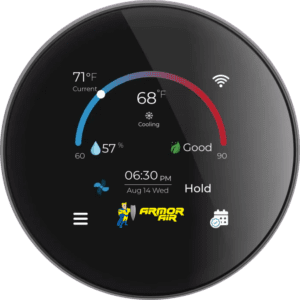
Best Smart Thermostat Settings for Hot Weather
Believe it or not, the best thermostat setting for summer isn’t the coldest temperature available. Even on the hottest day, it’s best to set your residential thermostat to a moderate 76 to 78 degrees, adjusting it as necessary if you still find it too warm in the house.
To save even more energy when it’s hot out, program the temperature higher when you’re out of the house or asleep. Experts recommend setting it to a balmy 82 to 85 degrees, unless you have pets at home, in which case you’ll need to keep it lower for their health and safety.
Smart Thermostat vs Traditional Thermostat
Smart thermostats offer:
- Energy-saving technology
- Intuitive touch screen displays
- Remote access control
- Easy integration with other smart-home devices
- CO2 monitoring functions
- Customizable backlight and display features
- System alerts to prevent breakdowns
- Enhanced comfort
Traditional thermostats are designed with simplicity in mind. Although they cost less initially, they’re less efficient, resulting in higher long-term energy costs. While the initial installation may cost more than regular thermostats, most homeowners find that smart thermostats are well worth the investment.
Why Professional Installation Matters
It is possible to install a smart thermostat by yourself, but it’s not a good idea unless you have extensive knowledge about your home’s complex HVAC and electrical systems. If you don’t know what you’re doing, not only do you risk injury, but you may also damage your home in the process.
At Armor Air, we offer smart thermostat installation that Indiana homeowners trust. With our experienced HVAC techs by your side, you can trust that your new thermostat will be installed safely and work properly. We’ll get the job done quickly, and once it’s put in, we’ll show you how it all works and answer your questions before we leave.

Schedule HVAC Service With Armor Air Today
Ready to schedule a smart thermostat consultation or installation? Contact Armor Air today, and book with us. From Avon to Zionsville, at Armor Air, our professional HVAC technicians make it easy for Indiana residents to achieve whole-home comfort, offering quality repair, installation, and replacement services.
Recent News
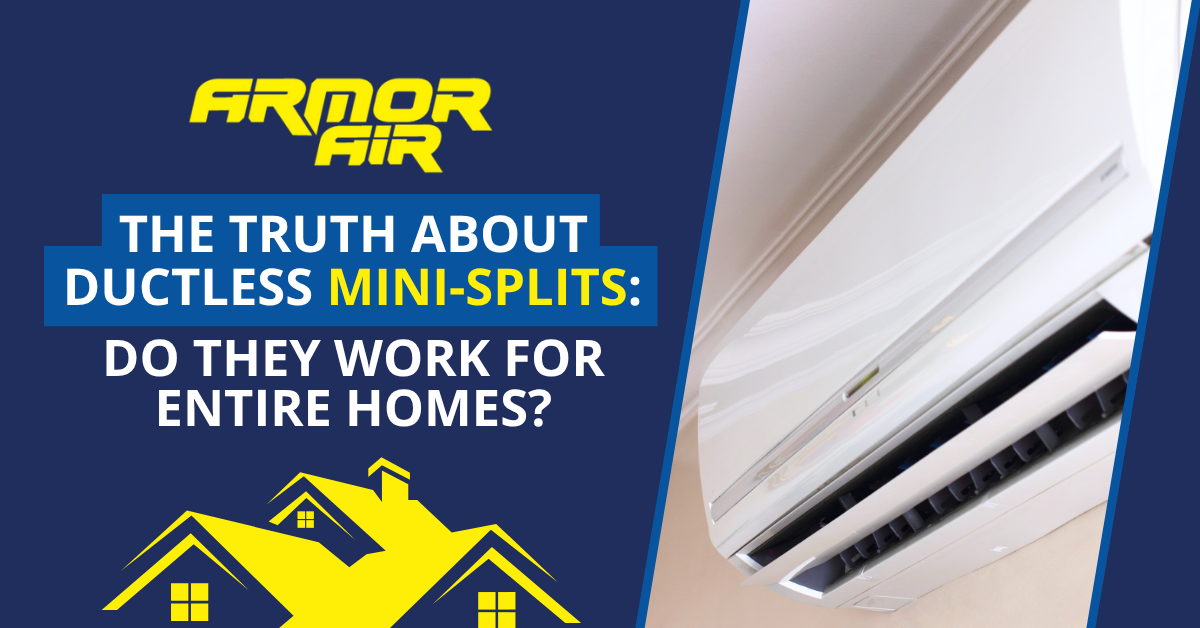
The Truth About Ductless Mini-Splits: Do They Work for Entire Homes?
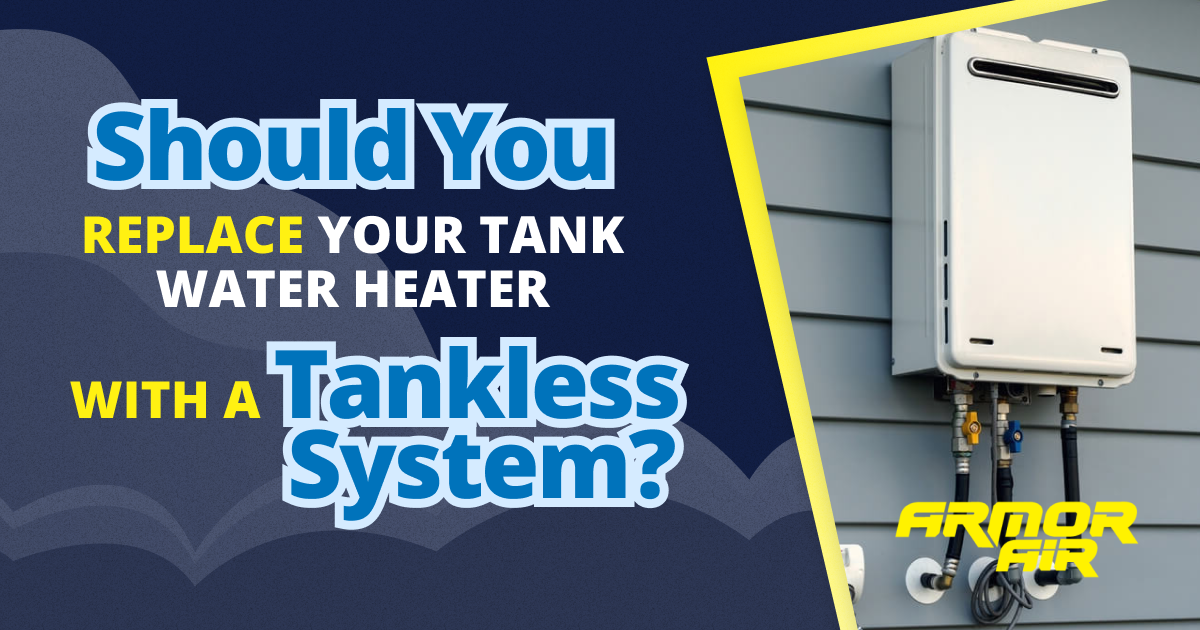
Should You Replace Your Tank Water Heater with a Tankless System?

Top Benefits of Installing a Water Softener in Your Home

Do You Need Emergency AC Service or Can It Wait? How To Tell

How to Beat the Humidity: Dehumidifier Benefits in Indiana Homes
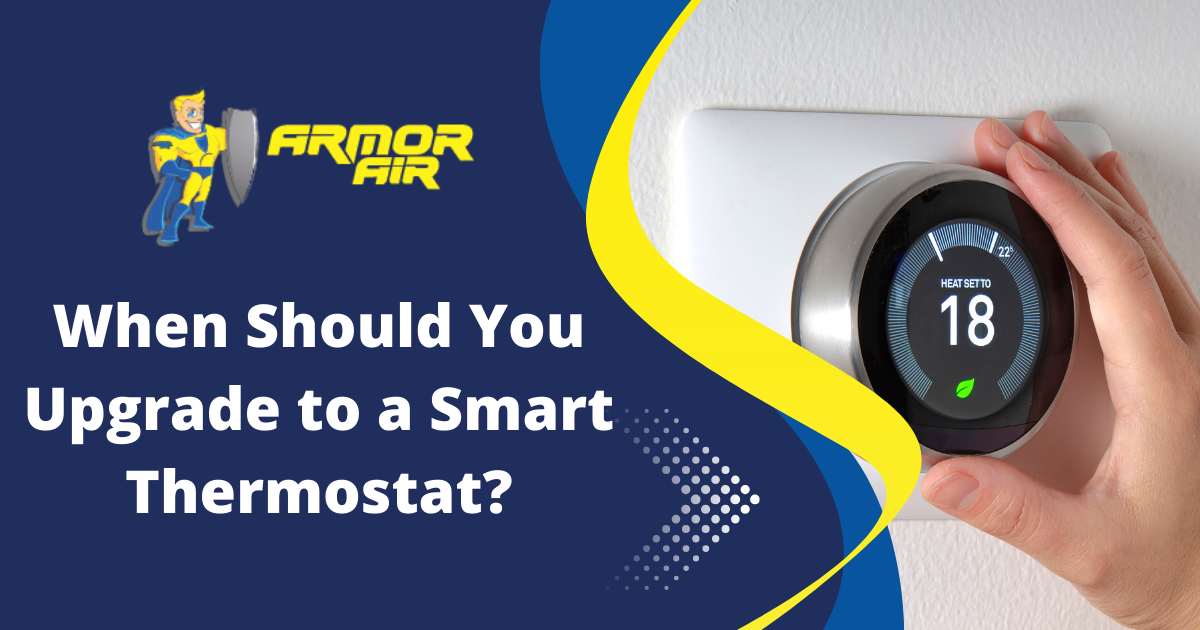
When Should You Upgrade To a Smart Thermostat?
